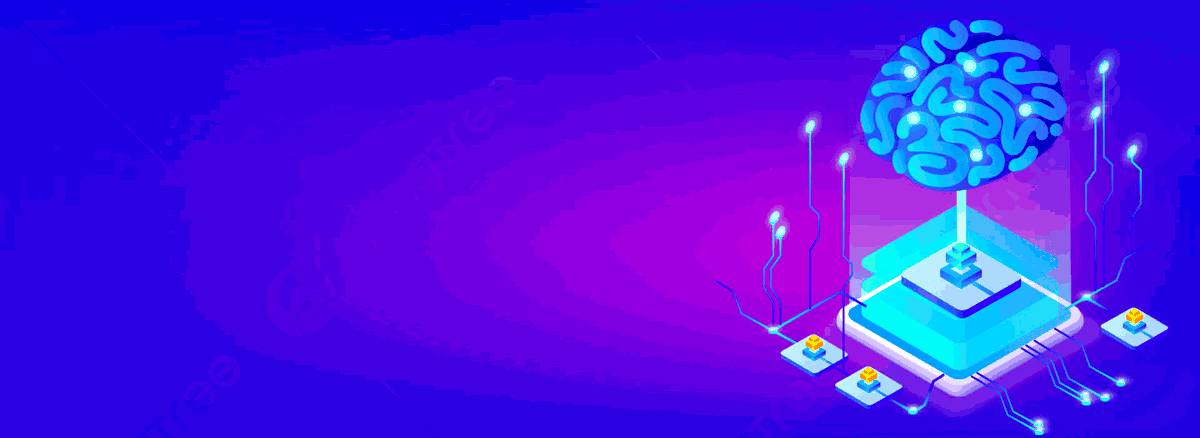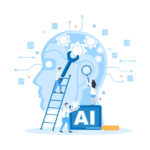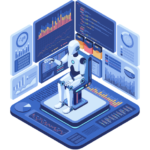 How to Hire an AI Data Scientist: Essential tips for sourcing and evaluating candidates, focusing on expertise in machine learning, analytics, and their impact on transformative business solutions.
How to Hire an AI Data Scientist: Essential tips for sourcing and evaluating candidates, focusing on expertise in machine learning, analytics, and their impact on transformative business solutions.
As businesses increasingly turn to artificial intelligence to improve their operations and gain a competitive edge, the demand for skilled AI data scientists continues to grow.
Hiring the right AI data scientist can be a complex and challenging process, requiring a thorough understanding of the specific skills and expertise required for the role.
Key Takeaways
- Hiring an AI data scientist is essential for businesses looking to embrace AI technology.
- Key criteria to consider when hiring an AI data scientist include educational background, experience in relevant industries, and proficiency in programming languages commonly used in AI.
- Preparing for the hiring process involves defining the job requirements, creating a detailed job description, and determining the budget for hiring an AI data scientist.
The Role of an AI Data Scientist
AI data scientists are essential to the success of any company looking to leverage the power of artificial intelligence to transform their business processes. An AI data scientist’s role is to utilize their expert knowledge of machine learning algorithms, data analysis, and programming to develop AI models that can drive operational efficiency and enhance the customer experience.
When looking for AI data scientist job candidates, it is important to consider a candidate’s level of expertise in these areas. In addition to technical knowledge, a strong understanding of data mining, statistical analysis, and predictive modeling is also desirable.
A successful AI data scientist must be able to work collaboratively with other team members and stakeholders to ensure that AI models meet business needs. Therefore, it is crucial to assess a candidate’s communication skills and ability to function well in a team environment.
| Key Responsibilities | Required Skills |
|---|---|
| Developing and implementing machine learning algorithms | Expertise in programming languages commonly used in AI, including Python, R, and Java |
| Analyzing and interpreting complex data sets | Strong knowledge of data mining and statistical analysis |
| Cross-functional collaboration to develop AI models that meet business needs | Excellent communication skills and ability to work well in a team environment |
Given their critical role in a company’s AI strategy, it is crucial to invest in AI data science staffing. Look for candidates with demonstrated experience and qualifications in AI and data science, and consider partnering with recruitment firms that specialize in finding the best AI data science talent.
Key Criteria for Hiring an AI Data Scientist

As AI continues to transform various industries, hiring an AI data scientist has become an essential component for businesses looking to stay competitive. However, finding the best AI data science talent can be a daunting task, and numerous factors must be considered.
Here are some data scientist hiring tips to help you identify the ideal candidate:
- Educational Background: Look for candidates with relevant degrees in computer science, mathematics, statistics, or a related field. Advanced degrees such as a Ph.D. are preferable, as they demonstrate a high level of academic achievement and passion for the field.
- Experience in Relevant Industries: Consider candidates with experience in industries that are heavily reliant on data analysis, such as finance, healthcare, or e-commerce. This experience can translate well to an AI data scientist role.
- Programming Proficiency: Look for candidates with expertise in programming languages commonly used in AI, such as Python, R, or Java. Proficiency in big data technologies, such as Hadoop or Spark, is also a significant plus.
- Machine Learning and Data Analysis Skills: The ideal AI data scientist should have strong analytical skills and the ability to manipulate large datasets. Experience with machine learning algorithms and frameworks is critical, as is the ability to draw actionable insights from data.
- Strong Communication and Collaboration Skills: Look for candidates who are effective communicators and can work well with cross-functional teams. AI data scientists must be able to share their findings in a clear and concise manner and collaborate effectively with stakeholders.
By considering these key criteria, you can narrow down your search and identify candidates who are most likely to excel in an AI data scientist role. Remember, hiring the right AI data scientist is a crucial decision that can impact the success of your business for years to come.
Preparing for the Hiring Process
Before embarking on the search for an AI data scientist, it’s essential to prepare for the hiring process. This not only ensures a focused and efficient search but also increases the chances of finding the right fit for the job.
Here are a few things to consider when preparing for the hiring process:
- Define the job requirements: Clearly define the specific responsibilities and skills required of the AI data scientist. This includes analyzing your business needs and identifying the areas where AI can add value.
- Create a detailed job description: A comprehensive job description should be created that reflects the job requirements. This can include details about the role, responsibilities, and the desired experience and qualifications in a candidate.
- Determine the budget: The budget for recruiting an AI data scientist should be determined in advance. This can help manage expectations and ensure that the right candidate is found within the set budget.
By following these steps, recruiters can streamline the hiring process and attract the best-suited candidates for the position.
Sourcing and Screening Candidates

When it comes to hiring AI data scientists, finding the right job candidates is essential. There are various methods of sourcing candidates, including online job platforms, industry-specific forums, and networking events.
Before screening candidates, it is important to define your job requirements and create a detailed job description. This will help you attract the right talent for your specific needs.
When screening candidates, it is important to review resumes carefully to ensure they have the necessary skills and experience for the job. Technical interviews can also help evaluate a candidate’s proficiency in programming languages and machine learning algorithms.
Conducting Behavioral Interviews
In addition to technical skills, it is important to evaluate a candidate’s soft skills during the screening process. Conducting behavioral interviews can provide insight into a candidate’s ability to communicate effectively, work in a team, and handle problem-solving tasks.
When assessing cultural fit, it is important to consider the candidate’s personality traits, work style, and values. This will help ensure they are a good fit for your team and organization.
Overall, sourcing and screening candidates is a crucial step in hiring the right AI data scientist for your business.
Assessing Technical Skills
Once you have screened potential candidates for the AI data scientist role, it’s time to assess their technical skills to ensure you are finding the best AI data science talent and recruiting AI data experts. Technical skills are a crucial aspect of this role as the AI data scientist will be responsible for creating and implementing machine learning models, and analyzing data to provide insights for businesses.
One way to assess technical skills is by providing coding challenges that require candidates to solve a particular task using programming languages such as Python, R, or Java. This can provide a good indication of the candidate’s ability to tackle a complex problem and use programming skills to solve it.
Another way to assess technical skills is by providing data analysis exercises that test the candidate’s ability to analyze and draw insights from complex datasets. This can include structured and unstructured data, requiring the candidate to clean, analyze, and extract insights to help businesses make decisions.
Finally, algorithmic problem-solving tasks can be used to assess the candidate’s ability to implement and optimize algorithms that can be used in machine learning models. Such problems can help you determine the candidate’s ability to understand complex algorithms and solve problems related to machine learning models.
Assessing technical skills is a crucial step in the AI data scientist hiring process, and should not be overlooked when finding the best AI data science talent and recruiting AI data experts. By using the methods outlined above, you can ensure that you are hiring a skilled AI data scientist who can apply their technical expertise to drive business success.
Evaluating Soft Skills

In addition to technical skills, it’s crucial to evaluate the soft skills of AI data scientist candidates. These skills can make a significant difference in their job performance and integration into your team.
When conducting behavioral interviews, look for candidates who demonstrate strong communication skills, the ability to work collaboratively in a team environment, and creative problem-solving abilities. Ask open-ended questions that encourage them to talk about their experiences and provide examples of situations where they demonstrated these skills.
Cultural fit is also essential when hiring an AI data scientist. Look for candidates who align with your company’s values and mission. You may want to involve members of your current team in the hiring process to ensure the candidate will integrate well with your team.
Overall, evaluating soft skills is critical in finding the best AI data science talent for your organization.
Making the Final Decision
After conducting thorough interviews and assessments, it’s time to make the final decision in hiring an AI data scientist. Before making an offer, it’s important to conduct reference checks and ensure the candidate has a solid track record in their previous roles.
Consider factors such as salary negotiations and benefits packages. Keep in mind that competition for top AI data science talent is fierce, and it may be necessary to offer a competitive package to secure the best candidate.
Once the offer is made and accepted, it’s important to provide a smooth onboarding process and ensure the new hire has all the necessary resources to succeed. Remember that hiring an AI data scientist is just the first step – it’s important to keep them engaged and motivated to retain top talent in the long term.
Retaining and Developing AI Data Scientists
Once you have successfully hired an AI data scientist, it is important to retain them and develop their skills further. This can not only save the time and cost required for hiring new talent but also ensure that your business achieves greater success in the long run. Below are some strategies you can adopt to retain and develop your AI data scientists.
Offer training opportunities
Investing in training opportunities such as courses, workshops, and conferences can help keep your AI data scientists up-to-date with the latest industry trends and technologies. This can also provide them with career growth opportunities and help in improving their skills and expertise.
Provide mentorship
Another effective way to retain and develop AI data scientists is to provide mentorship opportunities. Experienced data scientists can mentor junior team members, which can help in improving their skills and knowledge. This can also create an environment of continuous learning and development which can be beneficial for both the individual and the business.
Create a supportive work environment
To retain your AI data scientists, it is important to create a supportive work environment that encourages collaboration, innovation, and personal growth. This includes providing them with the necessary tools and resources needed to perform their job effectively and recognizing their accomplishments and contributions to the team.
Offer competitive compensation
Finally, offering competitive compensation and benefits can help in retaining and attracting top AI data science talent. This includes providing fair salaries, health insurance, and other benefits such as retirement plans, paid time off, and flexible work arrangements.
By prioritizing the retention and development of your AI data scientists, you can create a strong and effective team that can drive success for your business.
Focus on providing them with the necessary resources and support needed to achieve their goals, and you will undoubtedly see positive results in the long run.
External Resources
https://capd.mit.edu/resources/the-star-method-for-behavioral-interviews/
https://www.freecodecamp.org/news/the-data-science-and-ai-handbook/
https://www.mmu.ac.uk/study/undergraduate/course/bsc-ai-and-data-science
FAQ

Q: How important is hiring an AI data scientist for businesses?
A: Hiring an AI data scientist is crucial for businesses as they possess the expertise needed to leverage artificial intelligence and data science effectively. They can help businesses extract insights from data and develop innovative solutions to improve operations, optimize processes, and drive growth.
Q: What specific skills and responsibilities does an AI data scientist have?
A: An AI data scientist is responsible for tasks such as data analysis, machine learning, developing algorithms, programming, and building predictive models. They need to have a strong background in mathematics, statistics, and computer science, along with knowledge of programming languages like Python or R.
Q: What are the key criteria to consider when hiring an AI data scientist?
A: When hiring an AI data scientist, consider their educational background, experience in relevant industries, proficiency in programming languages (Python, R, etc.), understanding of machine learning algorithms, and their ability to apply data science techniques to solve real-world problems.
Q: How can businesses prepare for the hiring process of an AI data scientist?
A: Businesses should define the job requirements clearly, create a detailed job description that reflects the necessary skills and responsibilities, and allocate a budget for hiring an AI data scientist. It is also important to establish a recruitment timeline and determine the evaluation criteria for candidates.
Q: What methods can businesses use to source and screen AI data scientist candidates?
A: Businesses can source candidates through online job platforms, industry-specific forums, and networking events. When screening candidates, it is important to review their resumes, conduct technical interviews to assess their skills and knowledge, and evaluate their portfolios or past projects.
Q: How can businesses assess the technical skills of AI data scientist candidates?
A: To assess technical skills, businesses can provide coding challenges, data analysis exercises, and algorithmic problem-solving tasks. These assessments will help determine candidates’ proficiency in programming, understanding of machine learning algorithms, and ability to work with complex data sets.
Q: Why is it important to evaluate soft skills in AI data scientist candidates?
A: Soft skills are critical for an AI data scientist as they often collaborate with cross-functional teams, communicate complex ideas, and solve problems effectively. Evaluating soft skills such as communication, teamwork, and problem-solving abilities can help determine how well candidates will fit into the organization.
Q: What steps should businesses take to make the final decision in hiring an AI data scientist?
A: To make the final decision, businesses should conduct reference checks to validate candidates’ skills and experiences. They should also consider salary negotiations and make a competitive offer that aligns with market standards. Ultimately, the decision should be based on selecting the candidate who best fits the requirements and culture of the organization.
Q: How can businesses retain and develop AI data scientists?
A: To retain and develop AI data scientists, businesses can offer training opportunities to enhance their skills and keep them updated with the latest advancements in AI and data science. Providing mentorship programs, creating a supportive work environment, and offering growth opportunities can also help in retaining and developing talent.
Benjamin Bale is a distinguished expert in the field of AI development and an esteemed author for the “Hire AI Developer” blog. With a remarkable decade-long experience in the industry, Benjamin has cemented his reputation as a leading authority in AI app and website development, as well as AI backend integrations. His profound passion for AI and its transformative potential is evident in every aspect of his work.
Benjamin’s journey into the world of AI began at Edinburgh University, where he pursued his studies in AI and Mathematics. It was during this time that he cultivated a deep understanding and fascination for the subject. Throughout his career, Benjamin has accumulated extensive experience working with industry giants such as Goldman Sachs, Tencent, and Ali Express. These invaluable experiences have not only sharpened his skills in integrating existing systems with AI APIs but have also solidified his status as a consummate professional in the field.
Currently residing in the vibrant city of London, Benjamin finds solace in his role as both an author and developer. Beyond his professional endeavors, he takes great joy in the company of his faithful canine companion, Chad, and indulges his passion for snowboarding in the picturesque mountains of France. Benjamin’s unwavering dedication to advancing AI technology, combined with his wealth of knowledge and practical expertise, make him an invaluable asset to the “Hire AI Developer” team and an invaluable resource for readers seeking profound insights into the realm of AI.







